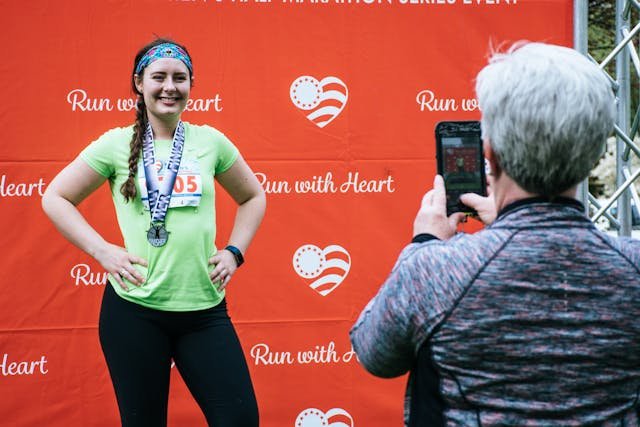
Signing up for my first half marathon was a spontaneous decision; it seemed like an exciting challenge. However, the reality of training quickly set in. Some days, I felt invincible, while others left me doubting my choices. Yet, crossing that finish line made it all worthwhile. Here are the key lessons I took away from the experience.
Training Is Just As Mental As It Is Physical
While your legs are getting stronger, your mind is, too. There were moments when I wanted to give up—especially on chilly mornings, during endless long runs, and on days when my body resisted my efforts and distractions beckoned.
Learning to push through those challenging moments instilled in me a valuable lesson in mental resilience. I had to teach myself to keep going even when stopping seemed so tempting. This skill is applicable beyond running—it serves well in everyday life.
The Right Gear Is Crucial
Experiencing blisters, chafing, and sore feet highlighted the importance of quality footwear. Initially, I thought any pair of running shoes would suffice, but painful experiences during long runs proved otherwise. Finding the right fit is essential.
This principle extends to socks, moisture-wicking apparel, and anti-chafing products. During runs exceeding two hours, even the slightest discomfort can amplify into a significant issue. Investing in carbon-plated shoes can also enhance performance on race day, allowing you to run faster for longer. The right gear can truly transform your experience.
Proper Fueling Is Essential
I once believed that a hearty dinner the night before would suffice, but long-distance running taught me the significance of pre-run snacks, mid-run nutrition, and hydration. Your body requires energy, and it’s vital to provide it with the right fuel.
Not Every Run Is Perfect – And That’s OK
Some days, you might feel invincible; on others, even a single mile can seem daunting. Both scenarios are normal, and what matters is maintaining your momentum. It’s crucial to listen to your body—there’s a significant difference between feeling unmotivated and being genuinely burned out.
The Running Community Is Amazing
On race day, I experienced the incredible support among runners. Strangers cheered one another on, volunteers offered water with genuine smiles, and everyone rejoiced together at the finish line.
Your Body Is More Capable Than You Realize
If you had told me two years ago that I would run 13.1 miles, I would have laughed. However, training revealed just how adaptable the human body is. I started with short, easy runs and gradually increased my distance to avoid injury. By race day, my body had adjusted, adapted, and strengthened. I discovered that I was capable of so much more than I ever believed.
Pacing Is Key
In the early stages of my training, I often set off too quickly, eager to finish. However, I learned that long-distance running requires a strategic approach. Starting out slowly is essential for maintaining a consistent pace and conserving energy for the final push. By the time race day arrived, I understood that finding and maintaining a sustainable pace could mean the difference between a strong finish and a struggle.
Post-Run Recovery Is Just As Important As Training
Initially, I focused solely on running and neglected recovery. But after my first 10-mile race left me barely able to walk the next day, I realized the importance of prioritizing recovery. Stretching, foam rolling, hydration, and scheduled rest days became just as vital as my training runs. Incorporating a recovery week every three to four weeks by reducing intensity or distance is crucial to avoid injuries and maintain well-being.
Music And Podcasts Can Be Lifesavers
Long runs can be monotonous; I quickly realized that having the right playlist or an engaging podcast can make a significant difference. Upbeat music provided the motivation I needed, while podcasts helped distract me from the distance left to cover. When fatigue set in, switching to an energizing track often gave me the boost I needed.
The Finish Line Experience Is Unmatched
Crossing that finish line brought together exhaustion, relief, and an overwhelming sense of pride. After months of training for this moment, it suddenly became real. The cheers from the crowd and seeing my family at the finish line provided the motivation for that final sprint. Receiving my medal and embracing my parents made me feel so accomplished that I knew I wanted to do it all again.
More Than Just A Race
Participating in my first half marathon taught me más than just how to complete 13.1 miles. It demonstrated the importance of consistency and the value of listening to my body. The training was challenging, but race day was the ultimate reward.







